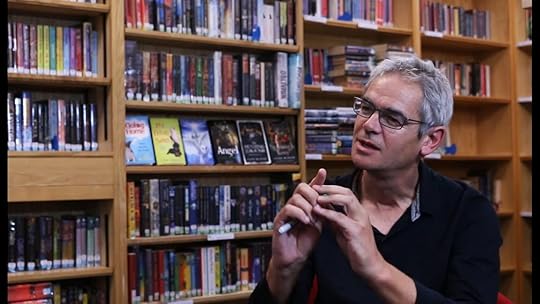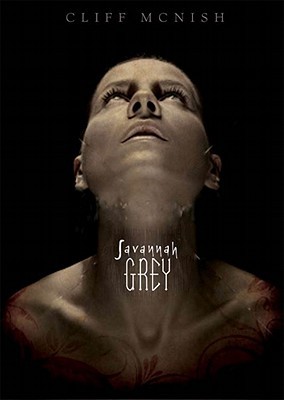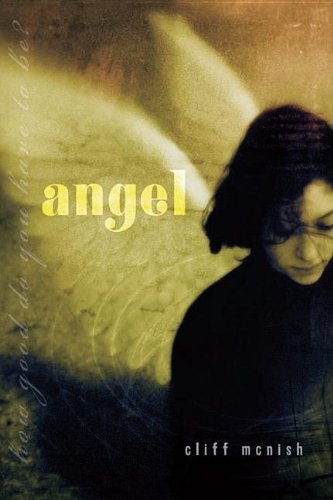Alex from 'Millennium Riot Readers' asks the questions

Alex: Do you have a preferred writing style?
Cliff: No. The voice tends to choose itself. I don't consciously experiment with style, but I guess the multiple first-person perspective I use in the Silver Sequence is fairly unusual for younger fiction and I'm sometimes described as a "bizarre" stylist where my pure fantasies are concerned, but that's mainly because my creations are fairly non-standard fare and because I do like to write first-person perspective from the villains' viewpoint. That's always a joy. The overall truth is that I just find a voice that works for each kind of story I'm writing and, once I'm comfortable, just go with it. If people read Going Home and can't recognise that person as the one who wrote Silver World – well, that's terrific. Form/content over style wins.
Alex: How important are your characters to you as you are writing?
Cliff: Very. In some novels like 'Breathe' – which almost never leaves a house – and 'Going Home' – which never leaves the dogs' home – you'd better get your characters right because you have no interesting locations to distract the reader from underdeveloped protagonists.

Alex: Are there any characters in your books which you particularly relate to?
Cliff: The torn Nyktomorph in 'Savannah Grey'. Mestraal and Hestron in 'Angel'. Walter in 'The Silver Sequence'. I can't even begin to tell you why. They just felt the most human – though only one of those is actually human at all. In lots of ways I like to do that – explore what it means to be human. And monsters, or archetypal angels, are perfect mirrors for that.

Alex: What sparked the initial idea for 'Angel'?
Cliff: A saw a little girl lying in bed, with light gradually increasing on her sleeping face. When she wakes she sees a beautiful angel. But here's the part that made me write it – the angel starts crying in front of her. An adult weeping at the bed of a child. I didn't know why. I sort of wanted to find out.

Alex: Your YA novels are always so different from each other, with 'Angel' being more of a "chick lit", 'Breathe' being such a chilling ghost story and 'The Hunting Ground' more of a horror. Do you think it's important to keep upping your game and differentiating between styles of writing and genres?
Cliff: Angel as chick lit? Really?! To me it's more a kind of moral fable. I don't consciously do "different" books. I just wait for a story idea to grab me from amongst the many that flit in and out of my head. At the moment those are mostly humorous, warm storylines. They used to be darker. I honestly can't chart why, but I like both strands. I just wait for a gut emotional reaction – a wrench that says, "Yes, this is worth writing."
Alex: Where do you draw your ideas from? Personal experiences, everyday experiences or a mix or things?
Cliff: Hardly anything from personal experience until I wrote ‘Going Home’ which is definitely informed by my days fostering dogs. I genuinely have no idea where most of my ideas come from.

Alex: When beginning a new novel do you plan the characters first and then fit the story around them or do you plan the whole thing out methodically?
Cliff: I tend to have the idea first – and instantly embedded in that are usually one or two main characters who will carry it. I then play with the idea – see if it has 'legs' as they say. If I'm still excited, I start to develop the characters to carry the idea, and sketch an outline plot. If that still looks good, I'll sketch certain scenes in more detail and start thinking about character motivations – and so on, ad infinitum. The entire cast/plot develops in a higgledy-piggledy, meandering, blind-alley-galore riot of confusion and feedback loops from that point. There's nothing linear or consistent about it. I just use what feels right and works – and discard all the rest.

Published on January 17, 2018 14:13
No comments have been added yet.



